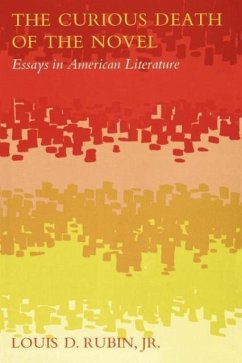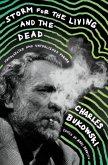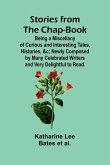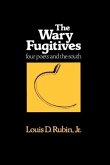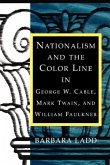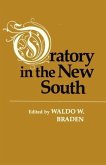One of the country's more perceptive younger critics, Louis Rubin is well known for his commentaries on the literature of the South. These essays--selected from his critical works over a period of more than a dozen years--reflect his wider concern with the whole spectrum of American literature. In the title essay Rubin treats "tired literary critics" and the often-heard pronouncement that the novel is dead. He argues that the response of novelists to our difficult and demanding times "will doubtless be what the response of writers to difficult and demanding times always has been: namely, difficult and demanding works of literature." Another essay, "The Experience Difference: Southerners and Jews," is a perceptive examination of the parallels in different factors and cultural experiences which brought Southern and Jewish writers to prominence. Rubin explores the potential pitfalls for Southern writers today in an essay called "Getting Out From Under William Faulkner." Edgar Allan Poe's position in American literary history and H.L. Mencken's role as a literary critic and an "artist of destruction" who cleared the way and created an audience for the major American writers of the twenties are dealt with in other essays. The collection includes imaginative studies of Henry James, Mark Twain, Edmund Wilson, and Karl Shapiro. Several Southern writers, including Faulkner, Ellen Glasgow, Robert Penn Warren, Flannery O'Connor, and James Branch Cabell, also come under Rubin's scrutiny.
Hinweis: Dieser Artikel kann nur an eine deutsche Lieferadresse ausgeliefert werden.
Hinweis: Dieser Artikel kann nur an eine deutsche Lieferadresse ausgeliefert werden.

